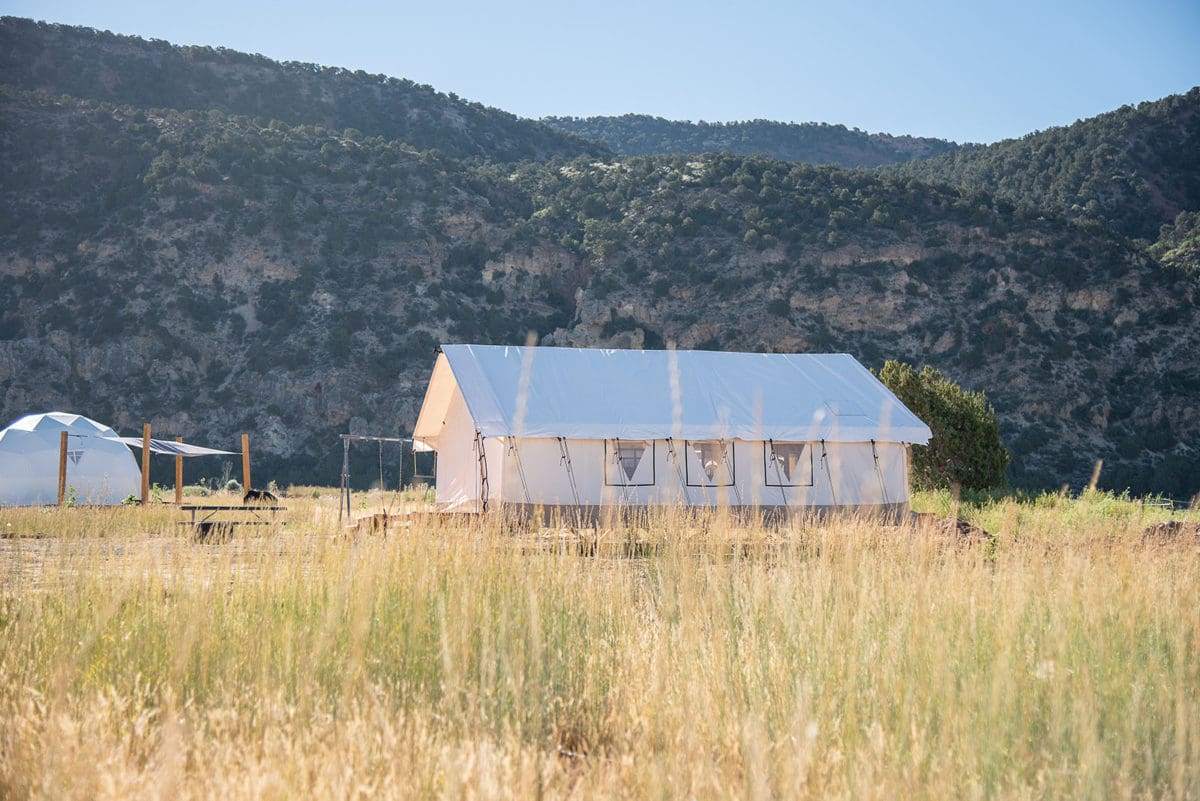
Family tent at Little Village Retreat, a glamping retreat in southern Utah
In the hustle and bustle of modern life, filled with screens, noise, and constant connectivity, finding solace in nature has become more crucial than ever. Beyond its aesthetic appeal, nature offers a myriad of benefits, with one of the most profound being its positive impact on our nervous system. In this blog post, we’ll explore the science behind how immersing ourselves in nature can be a powerful tonic for our mental well-being.
- Stress Reduction:
One of the most well-documented benefits of spending time in nature is its ability to reduce stress. The natural environment provides a peaceful and tranquil atmosphere, helping to lower cortisol levels—the hormone associated with stress. Studies have shown that just a short walk in a natural setting can significantly decrease stress and anxiety, promoting a sense of calm and relaxation.
- Improved Mood and Mental Health:
Nature has a remarkable influence on our mood and mental health. Exposure to green spaces has been linked to a reduction in symptoms of depression and anxiety. The fresh air, natural sunlight, and the soothing sounds of rustling leaves or flowing water contribute to the release of endorphins, the body’s natural mood enhancers. Nature serves as a natural antidepressant, offering a simple yet powerful remedy for the challenges of daily life.
- Enhanced Cognitive Function:
Regular exposure to nature has been associated with improved cognitive function. Nature walks or spending time in green surroundings have been shown to boost attention and focus, reduce mental fatigue, and enhance creativity. This phenomenon, known as the “restorative effect of nature,” allows our brains to take a break from the constant stimuli of urban environments, leading to improved cognitive performance.
- Lowering Blood Pressure and Heart Rate:
The calming effect of nature extends beyond psychological benefits to physiological improvements. Studies have indicated that spending time in nature can lead to lower blood pressure and heart rate. The gentle rhythms of nature, such as the sound of waves or the wind in the trees, can induce a state of relaxation, promoting cardiovascular health and reducing the risk of stress-related illnesses.
- Connection with the Earth:
The concept of “grounding” or “earthing” suggests that direct physical contact with the Earth’s surface—such as walking barefoot on grass or soil—can have positive effects on our nervous system. This practice is believed to reduce inflammation and stress, promoting a sense of well-being. While more research is needed, early studies suggest that reconnecting with the Earth may offer a natural remedy for the stresses of modern life.
In a world dominated by technology and urban landscapes, it’s easy to overlook the profound impact nature can have on our nervous system. From stress reduction and improved mood to enhanced cognitive function, the benefits of spending time in nature are both scientifically supported and experientially profound. So, the next time you feel the weight of the world on your shoulders, consider taking a break and immersing yourself in the healing embrace of nature. Your nervous system will thank you.
All of our units at Little Village Retreat have wonderful views, large windows and decks that allow you to get out into nature and receive all the benefits of getting out into Nature.




